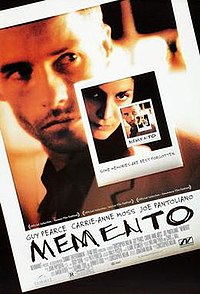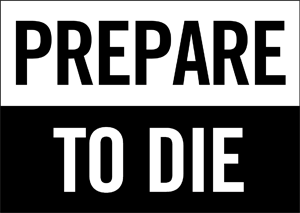
In the last few days I have sat with two people with failing memories. One could not remember that their spouse had died in the last few hours, could not remember being there, the time and place, the last conversation. The other, who plaintively, anxiously asks for a sibling who visits every afternoon with a friend, thinks that no one ever comes. I repeat every few minutes that it is not visiting time yet, there's 30 seconds relief, then it's back to the question. Over and over I am met with my failure to make an impression, to make them see. Nothing I say sticks around.
Memory is fundamental to our conception of the human person. What chance for psycho-spiritual movement, growth, journeying and coming to new understandings of life if a person has no memory of an occurrence and their changing relationship to that occurrence over time? How can I grieve if I can't remember that my love has died?
One of my all-time favourite films is Memento. A man, suffering from short-term memory loss, uses notes and tattoos to hunt for the man he thinks killed his wife.
He is prey to self-and-other deception. It is a commentary on the postmodern world with no metanarrative: if we have no story to live in, then we have no story to live from, and we go round in ever-decreasing peregrinations, making the same old, or increasingly disastrous mistakes. We're like the Israelites having forgotten Babylon: lost without knowing the fact.
 How then meaningfully to be with two people lost in their own Groundhog Day who, unlike Phil Connors, cannot remember yesterday and so cannot make today different and, just maybe, better. How am I to let go of the desire to offer the opportunity to think and feel through the consequences of life's happenings? I know that when I leave it will be as if I had never walked through the door: nothing has changed, nor can it.
How then meaningfully to be with two people lost in their own Groundhog Day who, unlike Phil Connors, cannot remember yesterday and so cannot make today different and, just maybe, better. How am I to let go of the desire to offer the opportunity to think and feel through the consequences of life's happenings? I know that when I leave it will be as if I had never walked through the door: nothing has changed, nor can it.
I am constitutionally unable to believe that God is anything other than good – so God unavoidably, ineluctably is with and for us whatever, whether or not we can remember, whether or not we can pray. I have to believe in the fragile, fleeting and blessed present moment where my being there and my prayer are communion and a relief for loneliness. I have to let go of that modern illusion of progress, and the satisfaction of making something happen. I have to be silent before my failure.























































